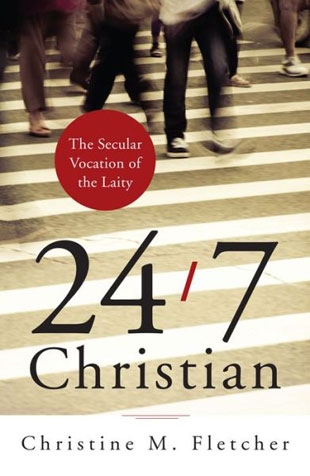"Each of us is called to be a disciple, and each of us has a special mission. We are prepared for it by the uniqueness of our identity: our gifts and talents, our personality, the time and place we were born. We have a specific situation in which to use our gifts and specific challenges to answer," writes Christine M. Fletcher, associate professor of theology at Benedictine University and an oblate of St. Procopius Abbey, Lisle, Illinois.
This positive vision of the laity was preceded by a long-standing tradition in many Christian communities where believers had two separate compartments for the church and the world. The second Vatican Council broke down the walls separating the two worlds. The church, having lived so long with the ideal of "Fortress Catholicism," wanted to give laity a chance to serve others. Today, the challenge lies in living faith and ministry in the context of a globalized consumer culture where difficult ethical choices must be made.
Fletcher takes a brief look at how Jesus called ordinary people to be his disciples and then let them decide on their own how to relate to pagans and people of other groups. For those who are seeking a vocation, Fletcher provides a series of questions and exercises about the image of God, the stages of life, and Catholic social teachings.
Benedictine spirituality suggests that the quest to be 24/7 Christians can be nourished by humility, stewardship, and a life lived in balance. These three spiritual virtues help in the fulfillment of a mission of discipleship. Fletcher does a good job revealing how dependent we are on the wisdom of our spiritual ancestors.
